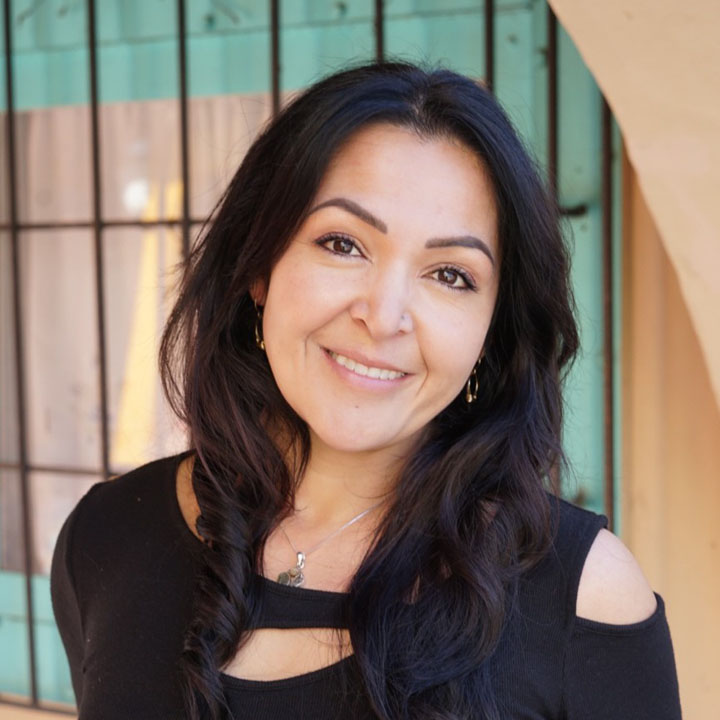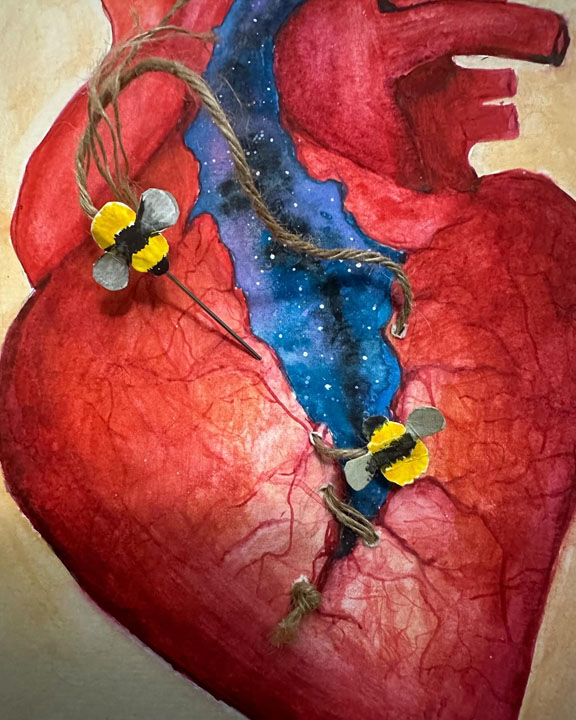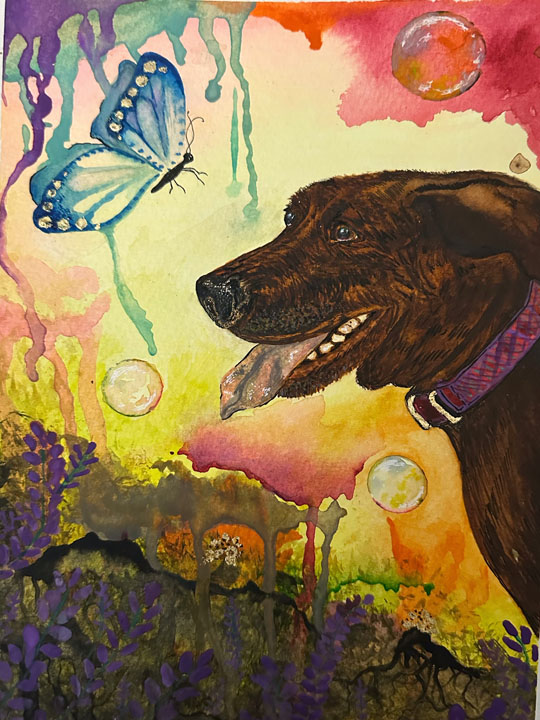
Melanie Morones '07 (she/they) is the ECMH Senior Clinical Program Manager at the YMCA of San Diego, where she leads a team of IECMH Consultants and supports program development across the county. She is also an adjunct faculty member at LMU and provides Clinical Art Therapy supervision to emerging providers. A co-founder and tri-chair of the annual Birth of Brilliance Conference & Cultural Fair, she focuses on addressing inequities and implicit bias in family-facing services. Her career in infant and early childhood mental health began in South-Central Los Angeles, where she was trained in Child Parent Psychotherapy and later became faculty in the Early Intervention Training Institute. Her diverse professional experiences have shaped an approach grounded in compassionate curiosity and cultural reverence.
How did you first discover Art Therapy, and what inspired you to pursue this field?
You know, I actually first set out to find a program in expressive arts therapy. I had a theater minor in college, and I didn’t think I had enough media arts background. But when I look back at my childhood in the more objective way that time and growth permits, I can see that both of my parents had always been very artistic, only allowing themselves to call it being crafty. My dad drew a game for almost every holiday, and my mom could do a little bit of everything—EXCEPT drawing. Balance. I’d often turned to art to process feelings… again thinking myself a crafter until I unlearned and relearned a new relationship with art making, access, and decolonizing practices around the invitation to create art. After much research, I only ended up applying to one graduate school, LMU. I can thank getting into it for the rest.
As a mental health clinician/advocate, can you describe your work and how you integrate the arts into your work?
In the work that I currently do, making art with children and families can honestly feel far away. I was warned that it was a risk, and I think about ways to incorporate more art daily. I luckily get to do a lot of art during the school year, around my LMU work. I use art to process difficulties they encounter with clients, or challenges I encounter as the supervisor. For the last couple years, another LMU alum and I have paired up to present on the benefits of art-based interventions at San Diego’s annual We Can’t Wait Conference. Additionally, both visual and expressive art are both a part of the Birth of Brilliance Cultural Fair, knowing that artists can both carry stories in the face of oppression as well as create neuro-aesthetic experiences that aid sustainability in challenging work.
Reflecting on your time at LMU, what experience or moment stands out as particularly valuable to your personal and professional growth?
There are a couple of ways to answer this question, but I will go with the memories that float back into my awareness the most often. The first is of my 2nd practicum at LACGC, now Wellnest. I was there at such an exciting time of professional development in terms of IECMH best practices, and reflective practice efforts. I learned so much during that time about strong documentation, excellent supervision, non-profit community wellness, and cultural responsiveness, that were such an important foundation.
The other memory is of Sunday night dinners with my LMU grad cohort. We rotated the logistics and necessities—each Sunday a different student’s apartment, new assignments for meal components… who was bringing the main course, the sides, the dessert… the guitar?? Even in the most chaotic ups and downs of completing a graduate program, Sunday dinners were our constant.
Can you walk us through your professional journey since graduating, including any key milestones or turning points?
My career began as an outpatient clinician at LACGC, evolving into the Program Manager and trainer of their Early Intervention Day Treatment Intensive program. After moving to San Diego, I became the Assistant Director at a residential treatment center but faced a layoff during COVID-19. This led to managing an LGBTQ+ program and co-founding the Birth of Brilliance Conference with the financial backing at San Diego Youth Services. The conference has started a movement of change in addressing implicit bias, challenging inequities, and working as a community on more equitable services for all families.
Currently, I work for YMCA and support a transdisciplinary team of Infant and Early Childhood Mental Health Consultants who work to support adults when they are feeling challenged around a child’s big feelings and big needs. My journey, from early intervention to advocating for families facing significant challenges, has fueled my passion. I can honestly say that all of my experience… getting steeped in IECMH knowledge, running a therapeutic preschool, being a mom who lived through the stresses of preschool expulsion, getting to work with teens and families experiencing much more entrenched in issues, and now supporting an amazing team with a service that builds adult capacity and has a call to action of reducing preschool expulsion and supports children at their earliest stage of life… feels like it was all leading to this moment, with this team, and this work.
What advice would you offer to students who are just starting their journey in this field, and what key skills or mindsets do you believe are most important for success?
First, be open to learning in ways you don’t expect. Some of the most important lessons won’t come from textbooks or lectures but from the people you serve, the supervision you receive, and the moments that challenge you. “Why" you do this work, and “how” you do your work, “how” you build relationships will matter more than any “what” you do. Stay curious—about the work, about yourself, and about the systems you’re navigating. Reflective practice isn’t just a buzzword; it’s what will sustain you in this field.
Second, find your people. This work can be heavy, but community—whether it’s colleagues, mentors, or your grad school cohort—makes it lighter. You will need safe spaces to process, to vent, and to be reminded why you chose this path.
Finally, don’t lose your creativity. Whether through art, play, storytelling, or just how you connect with people, your unique way of engaging is part of what makes you an effective clinician. The field needs thinkers and dreamers just as much as it needs structure and research.

